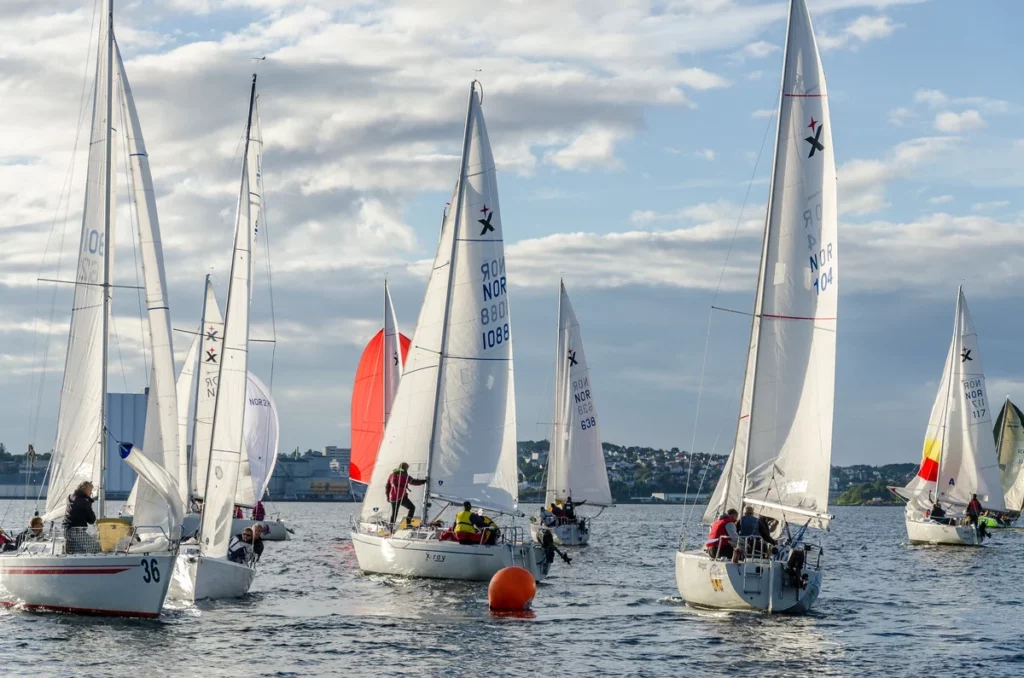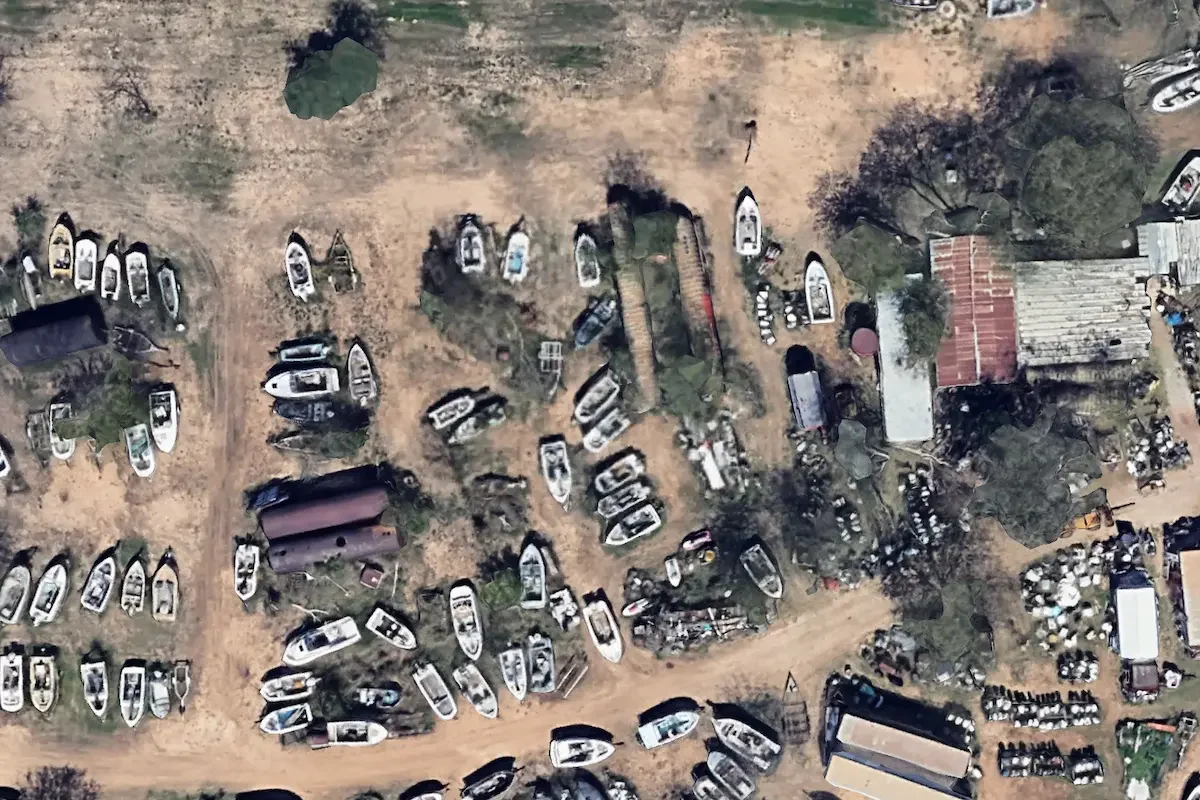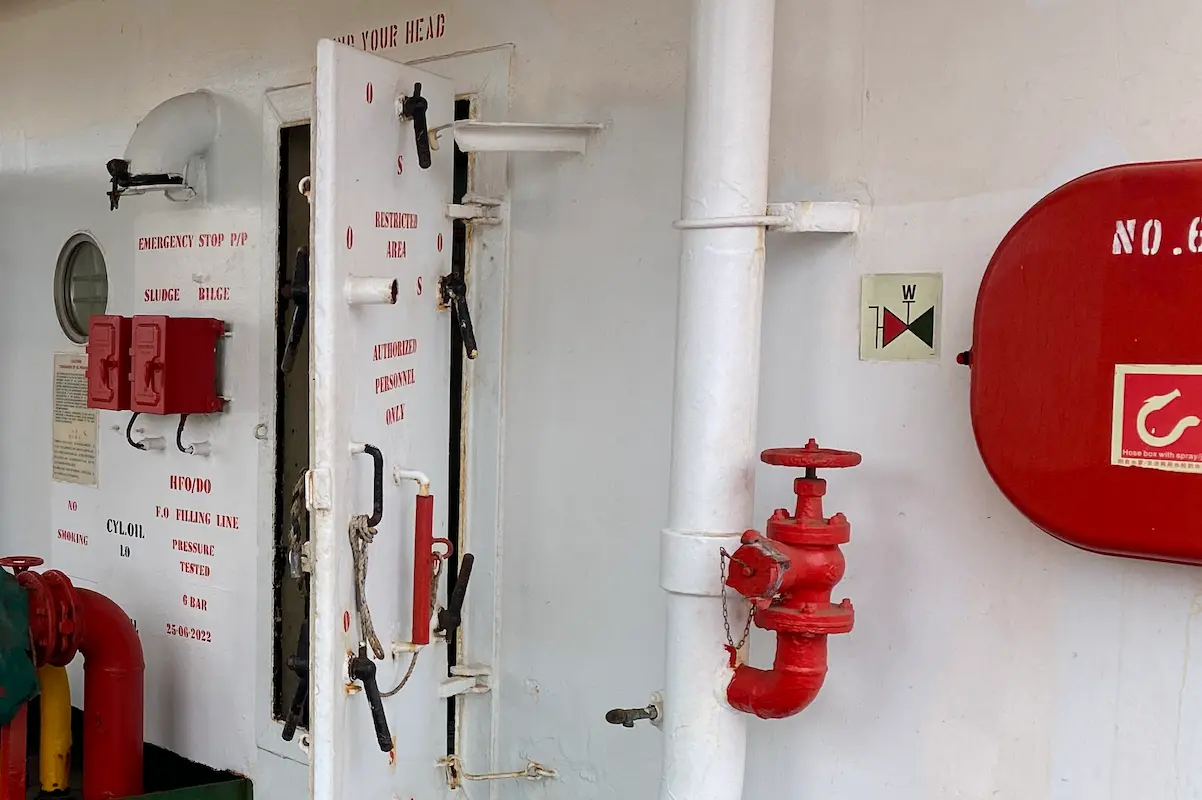Sailing is an exciting water sport that involves navigating a vessel using the power of the wind. It is a challenging yet rewarding activity that requires focus, skill, and physical fitness. For beginners who want to learn how to sail, taking a sailing course is an excellent way to start.
In this article, we will discuss the benefits of sailing courses for beginners, the different types of courses available, factors to consider before enrolling, what to expect in a sailing course, and the top sailing schools for beginners.

Benefits of Sailing Courses for Beginners
Sailing is a fascinating activity that has been enjoyed by people for centuries. It is not only a recreational pursuit, but also a competitive sport, a means of transportation, and a way to connect with nature. If you are interested in learning how to sail, there are many benefits to taking sailing courses for beginners. In this article, we will explore some of the top benefits of sailing courses for beginners.
- Learning a new skill Taking sailing courses for beginners is an excellent way to learn a new skill. Sailing requires a combination of knowledge and practical skills, including navigation, boat handling, and sail trimming. Learning how to sail can be a challenging but rewarding experience that will not only provide you with a new skill but also increase your confidence and self-esteem.
- Connect with nature Sailing allows you to connect with nature in a unique way. There is something about being out on the water, with the wind in your sails and the sun on your face, that is both exhilarating and calming. You can observe the natural world from a different perspective and gain a deeper appreciation for the environment.
- Develop teamwork skills Sailing is a team sport that requires coordination and communication between crew members. By taking sailing courses for beginners, you will learn how to work effectively with others, develop leadership skills, and become more confident in your ability to collaborate with others.
- Reduce stress Sailing can be an excellent way to reduce stress and improve your mental health. Being out on the water can provide a sense of peace and tranquility that is hard to find in our fast-paced world. The rhythmic motion of the boat can also be soothing, and the physical activity can release endorphins that help to reduce stress and anxiety.
- Stay fit Sailing is a physical activity that can help you stay fit and healthy. It requires strength, endurance, and flexibility, and can provide an excellent cardiovascular workout. Whether you are trimming the sails, hoisting the anchor, or steering the boat, you will be engaging your muscles and burning calories.
- Increase social opportunities Taking sailing courses for beginners can also provide you with opportunities to meet new people and expand your social network. Sailing clubs and regattas are great places to connect with other sailors, and you may find that you have a shared passion for the sport that can lead to lasting friendships.
- Explore new places Sailing courses for beginners can also provide you with opportunities to explore new places. Whether you are cruising along the coast or racing in a regatta, you can discover new destinations and experience different cultures. Sailing can be a great way to travel and see the world from a different perspective.
Taking sailing courses for beginners can provide you with many benefits, including learning a new skill, connecting with nature, developing teamwork skills, reducing stress, staying fit, increasing social opportunities, and exploring new places. If you are interested in learning how to sail, consider taking a beginner sailing course and discovering the many joys of this fascinating sport.
Types of Sailing Courses for Beginners
If you are new to sailing and want to learn the ropes, taking a sailing course is the best way to get started. With so many types of sailing courses available, it can be challenging to determine which one is right for you. This article will discuss the various types of sailing courses for beginners to help you make an informed decision.
- Basic Keelboat Sailing Course
The basic keelboat sailing course is a perfect starting point for beginners. It’s a beginner-level course that teaches the fundamentals of sailing. You will learn how to steer, tack, and jibe, as well as how to properly rig and de-rig a sailboat. This course usually takes place on small boats, which makes it an excellent option for those who want to learn on a more intimate and hands-on level.
- Cruising Course
If you are interested in going on extended sailing trips, a cruising course might be the right choice for you. This course teaches you how to navigate in different weather conditions, how to properly anchor, and how to manage onboard systems like water, electricity, and waste. It is an ideal option for those who want to spend more time on the water and gain more experience.
- Dinghy Sailing Course
Dinghy sailing courses are typically taught on small, single-sail boats that are easy to handle and maneuver, making them a great option for beginners. These courses focus on teaching the basics of sailing, such as boat handling, sail trimming, and safety procedures, and are taught by experienced instructors in a structured and supportive environment.
- Catamaran Sailing Course
Catamaran sailing courses are another great option for beginners, as these courses offer a unique sailing experience that is different from traditional monohull sailing. Catamarans are typically larger and more stable than dinghies, and offer a more spacious and comfortable platform for learning and practicing sailing skills. Like dinghy sailing courses, catamaran sailing courses are taught by experienced instructors and provide a safe and structured environment for beginners to develop their skills.
- Racing Course
If you are interested in sailing competitively, a Racing Course might be the right choice for you. This course teaches you how to improve your sailing speed, tactics, and strategy. You will learn how to work as a team, read the wind and waves, and sail in different conditions. It’s an excellent option for those who want to challenge themselves, improve their skills and participate in sailboat racing.
- Youth Sailing Courses
Youth Sailing Courses are specifically designed for young sailors, usually between the ages of 8-18. These courses teach the basics of sailing, including how to rig a boat, tie knots, and steer. They also teach young sailors how to work as a team and develop confidence on the water. These courses are an excellent way to introduce young people to the joys of sailing.
- Online Sailing Courses
Online Sailing Courses offer an alternative way of learning sailing for beginners. These courses provide access to digital content and video lessons that teach the fundamentals of sailing. They are an excellent option for those who prefer to learn at their own pace or are unable to attend in-person courses. However, they cannot provide the same hands-on experience as in-person courses.
There are many types of sailing courses available for beginners. Each course offers unique benefits, depending on your interests and goals. Whether you want to sail for leisure, racing, or explore new waters, there is a course that will suit your needs. By choosing the right course, you can gain the knowledge and confidence you need to become a skilled sailor.
Factors to Consider Before Enrolling in a Sailing Course
Sailing is a fun and exhilarating activity that can provide a great sense of adventure and freedom on the water. However, before embarking on this journey, it is important to consider a few factors before enrolling in a sailing course. Here are some key factors to keep in mind:
- Your level of experience: It is important to determine your level of experience before enrolling in a sailing course. If you are a complete beginner, it is best to start with an introductory course that covers the basics of sailing. If you have some experience, you may want to consider an intermediate course that will help you build upon your existing skills.
- Type of course: There are several different types of sailing courses available, including dinghy sailing, keelboat sailing, and catamaran sailing. Each type, of course, offers a unique experience and requires a different level of skill and experience. It is important to choose a course that is appropriate for your level of experience and matches your interests and goals.
- Location: The location of the sailing course is also an important factor to consider. If you live near the coast or a large body of water, there may be several sailing schools or clubs in the area. However, if you live inland, you may need to travel to find a suitable sailing course.
- Instructor experience: The experience and qualifications of the instructor can also have a significant impact on your sailing experience. Look for courses taught by experienced and certified instructors who have a proven track record of success in teaching sailing skills.
- Course duration and schedule: The duration and schedule of the course are also important factors to consider. Determine how much time you are willing to commit to the course and choose a schedule that works best for you.
- Course cost: Sailing courses can vary in cost, depending on the type of course, location, and instructor. Determine your budget and look for courses that offer good value for your money.
- Safety considerations: Sailing can be a dangerous activity if proper safety precautions are not taken. Look for courses that place a strong emphasis on safety and provide adequate safety equipment and instruction.
Before enrolling in a sailing course, consider your level of experience, the type of course, location, instructor experience, course duration, schedule, course cost, and safety considerations. By taking these factors into account, you can choose a sailing course that is suitable for your needs and provides a safe and enjoyable experience on the water.
What to Expect in a Sailing Course
Sailing is a thrilling and exciting sport that offers a unique experience to those who participate. However, learning to sail requires proper training and instruction, which is why taking a sailing course is essential. If you’re interested in taking a sailing course, you might be wondering what to expect. In this article, we will discuss the different aspects of a sailing course that you should anticipate.
- Introduction to Sailing
In the first part of the sailing course, you can expect an introduction to the basics of sailing. The instructor will teach you the different parts of the boat and their functions. You will also learn about the points of sail, which will help you understand how to use the wind to your advantage.
- Safety Procedures
Sailing involves being on the water, and like any water activity, safety is crucial. Before heading out to sea, the instructor will brief you on the safety procedures to follow while sailing. You will learn how to use the safety equipment on the boat and what to do in case of an emergency.
- Maneuvering the Boat
Once you’re familiar with the basic sailing concepts, you will start learning how to maneuver the boat. You will learn how to steer the boat, how to control the sails, and how to tack and jibe.
- Navigation
Navigation is an essential aspect of sailing. You will learn how to read charts and maps and how to use a compass. The instructor will teach you how to plan a route and how to use landmarks to navigate.
- Weather and Wind
Sailing is all about the wind, and you will learn how to read the wind to sail efficiently. The instructor will teach you about the different types of wind and how they affect the boat. You will also learn about weather patterns and how to read weather forecasts.
- Knots and Ropes
Sailing involves tying and untying knots and handling ropes. You will learn how to tie different types of knots, such as the bowline, clove hitch, and sheet bend. You will also learn how to use the different ropes on the boat.
- Practical Experience
After you have learned the theoretical aspects of sailing, you will get hands-on experience on the boat. The instructor will take you out on the water, and you will practice what you have learned. You will learn how to sail in different wind conditions, how to handle the boat in different situations, and how to work with a crew.
- Certification
Most sailing courses offer certification upon completion. The certification is an indication that you have completed the course and have the necessary knowledge and skills to sail safely. The certification can be useful if you plan to rent a boat or join a sailing club.
Taking a sailing course is an excellent way to learn how to sail and experience the thrill of being on the water. In a sailing course, you can expect an introduction to sailing, safety procedures, maneuvering the boat, navigation, weather and wind, knots and ropes, practical experience, and certification. With the proper training and instruction, you can learn how to sail safely and enjoy the sport to the fullest.
Top Sailing Schools for Beginners
If you’re looking for a top-rated sailing school for beginners, you have several options to choose from. Here are a few schools that offer exceptional beginner sailing courses:
- American Sailing Association (ASA) Schools: The American Sailing Association (ASA) is a well-respected organization that accredits sailing schools across the United States and internationally. They work with a network of schools that offer beginner courses designed to teach fundamental sailing skills in a safe and supportive environment. ASA schools also provide courses that lead to certifications recognized worldwide.
- Royal Yachting Association (RYA) Schools: The Royal Yachting Association (RYA) is a UK-based organization that provides sailing courses and certifications recognized worldwide. They work with a network of sailing schools across the globe to provide high-quality training for sailors of all skill levels, including beginners. RYA schools offer courses that are tailored to beginners and provide a thorough understanding of sailing techniques and safety.
- Offshore Sailing School: Offshore Sailing School is an ASA-accredited school that offers beginner sailing courses at various locations across the United States. Founded by Steve and Doris Colgate, Offshore Sailing School has a long-standing reputation for providing high-quality sailing instruction with a focus on hands-on training and personalized instruction.
- Nautilus Sailing: Nautilus Sailing is a sailing school based in California that offers beginner courses in various locations across the globe. Their courses are designed to provide a comprehensive understanding of sailing techniques and safety, with a focus on hands-on training and personalized instruction.
- Sunsail Sailing School: Sunsail is a well-known sailing charter company that also offers beginner sailing courses at various locations worldwide. Their courses focus on developing sailing skills while also providing an enjoyable and immersive experience for students.
Overall, these sailing schools offer exceptional beginner courses that provide a solid foundation for aspiring sailors. Each school has its unique teaching methods and curriculum, so it’s essential to choose one that suits your learning style and preferences. Regardless of which school you choose, taking a beginner sailing course is an excellent way to learn the basics of sailing and begin your journey as a sailor.
Conclusion
Sailing is an exciting and challenging water sport that offers a unique and rewarding experience. For beginners who want to learn how to sail, taking a sailing course is an excellent way to start.
By enrolling in a sailing course, beginners can develop physical fitness, enhance their self-confidence, and learn new skills. Before enrolling, it is important to consider factors such as budget, location, and instructor qualifications. With the right preparation and guidance, beginners can become confident and skilled sailors.
- Boat Salvage Yards in Texas – January 18, 2025
- 7 Boat Salvage Yards in Michigan – January 15, 2025
- Fire Hose SOLAS Requirements, Regulation 10: Ensuring Maritime Safety – January 9, 2025




